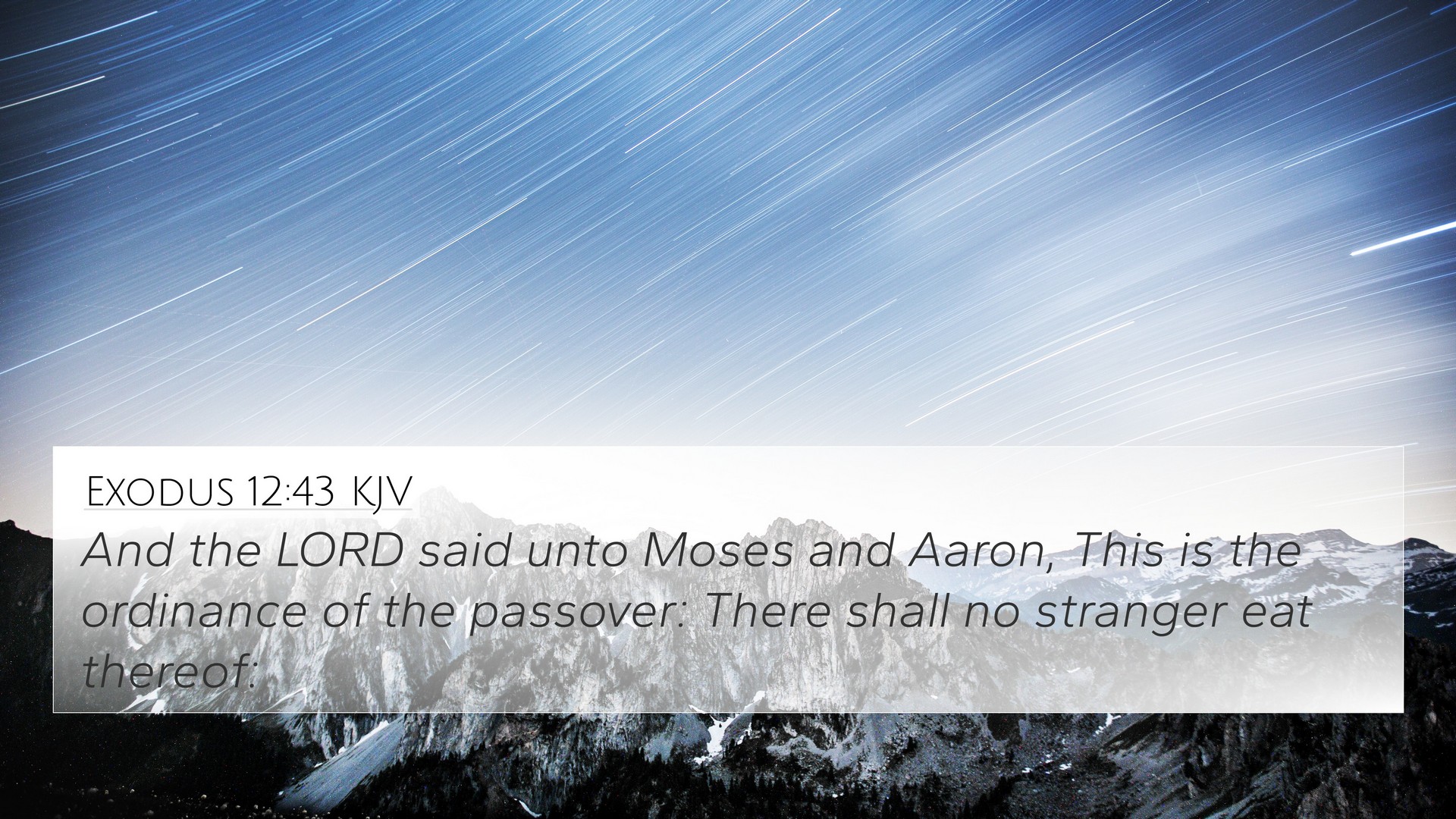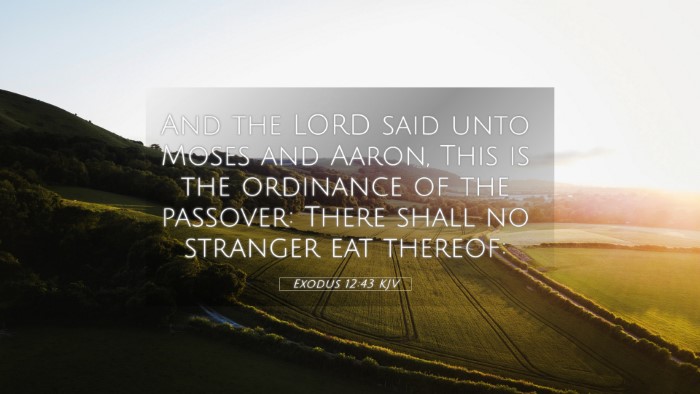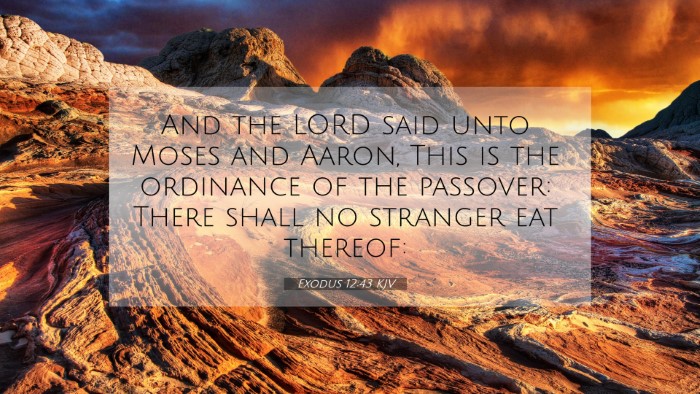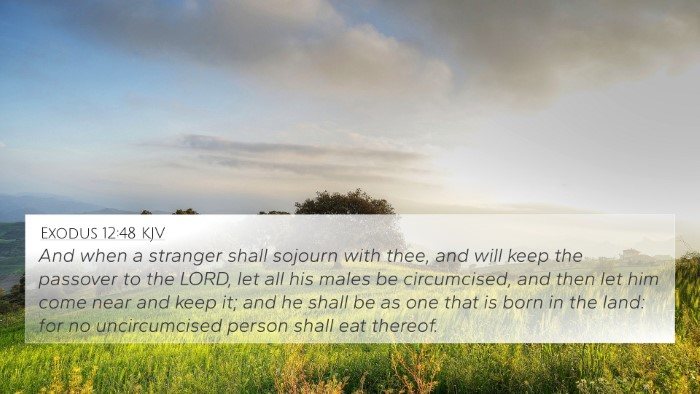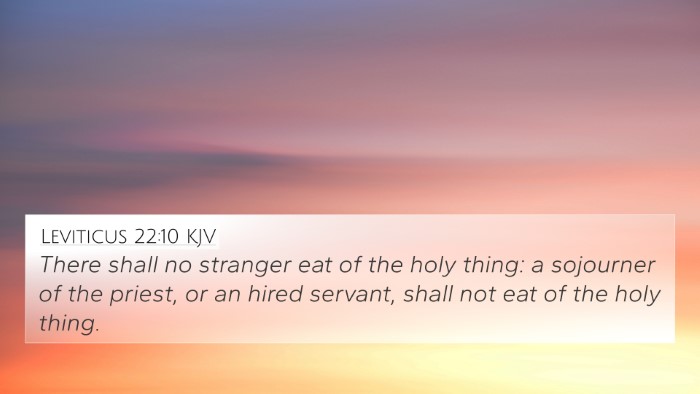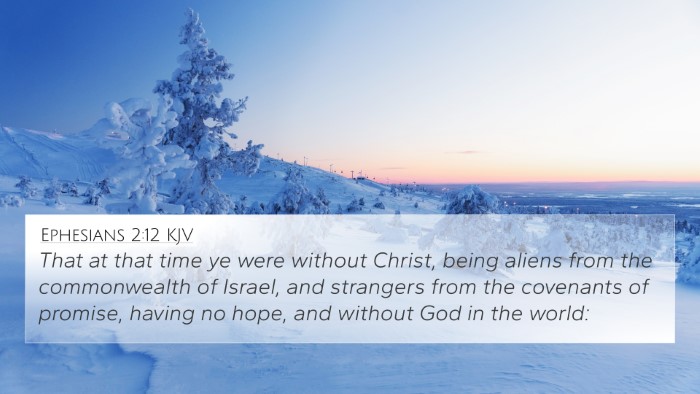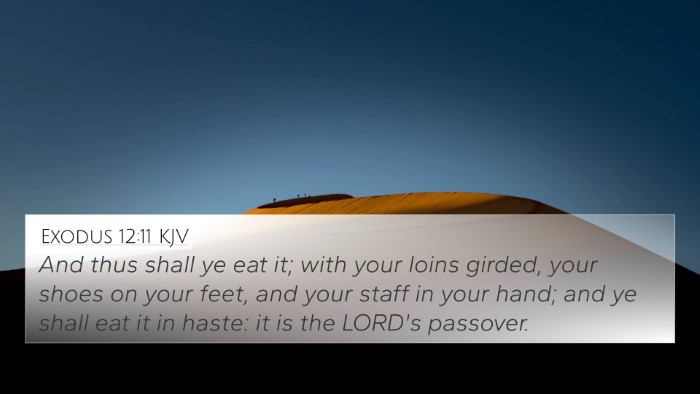Meaning and Interpretation of Exodus 12:43
Exodus 12:43: "And the Lord said unto Moses and Aaron, This is the ordinance of the passover: There shall no stranger eat thereof."
This verse is a pivotal moment in the narrative of the Israelites' liberation from Egypt. To understand its significance, we can look into several commentaries to gather insights.
Commentary Insights
Matthew Henry's Commentary: Henry emphasizes the importance of divine instruction in the observance of the Passover. He notes that the Passover was not just a historical event, but a sacred ritual that required adherence to specific ordinances. The term "stranger" refers to those not part of the covenant community, underscoring that God's salvation is extended to those who are part of His chosen people.
Albert Barnes' Notes: Barnes expounds on the significance of the Passover meal as a covenantal act. He suggests that the exclusion of strangers signifies the importance of belonging to the community that God has set apart for Himself. This ordinance reflects God's desire for His people to maintain purity in their worship and the necessity of understanding one's identity within the covenant.
Adam Clarke's Commentary: Clarke highlights the theological implications of this instruction. He argues that the Passover was a foreshadowing of Christ's sacrifice, where He also called His followers to partake in a covenant relationship. The restriction against strangers eating the Passover portrays the necessity for spiritual preparation and recognition of one's standing in relation to God.
Cross-References and Thematic Connections
Exodus 12:43 connects thematically with several other scriptures that enhance our understanding:
- Exodus 12:48: This verse continues the theme by indicating that foreigners can partake if they are circumcised—a symbol of covenant inclusion.
- Leviticus 22:10-11: It specifies that only priests and their households could eat the holy offerings, reiterating the theme of covenantal purity.
- Matthew 26:26-29: In this New Testament account of the Last Supper, Jesus reestablishes the significance of shared meals among His followers, emphasizing participants' covenant relationship.
- 1 Corinthians 11:27-29: Paul warns that partaking of the Lord’s Supper unworthily can have grave consequences, echoing the call for proper standing before God.
- Romans 9:25-26: Here, Paul explains that God’s mercy extends to the Gentiles, highlighting a shift in how included individuals are understood under the new covenant.
- Hebrews 9:14: This verse refers to the blood of Christ, connecting the Passover lamb to the ultimate sacrificial act.
- John 1:29: John the Baptist’s declaration of Jesus as the Lamb of God ties in with the Passover theme, emphasizing the sacrificial role of Christ.
Theological Implications
The verse is instrumental in understanding God's exclusive covenant with Israel. It reflects the broader theme of exclusivity in the divine relationship, a theme that pervades both the Old and New Testaments.
Moreover, the implications of the terms used in Exodus 12:43 speak to the practices of purity and separation that are foundational to worship in Israel. The discourse around the Passover emphasizes communal identity and divine mercy through a structured relationship with God.
Summary of Cross-Referencing Insights
Through cross-referencing Biblical texts, we can observe the unique linking between Old Testament law and New Testament grace. Each verse adds to a deeper understanding of God's intention for His people and their relationship with Him and one another.
- This verse serves as a reminder of God's sovereign choice in who He includes in His covenant.
- The theme of purity runs consistent throughout from the Exodus narrative into the teachings of Christ and the Apostles.
- The Passover foreshadows the greater redemption through Christ, urging the believer to examine their standing in the faith community.
Tools for Bible Cross-Referencing
Many resources exist for deeper study into Biblical texts and their interconnections:
- Bible Concordance: Useful for finding themes and words in scripture.
- Bible Cross-Reference Guide: Helps identify links between verses throughout the Bible.
- Bible Chain References: Allows for thematic studies across different books.
- Comprehensive Cross-Reference Materials: These are tools that facilitate broader textual analysis.
Conclusion
Understanding Exodus 12:43 through public domain commentaries reveals a profound connection between worship, community identity, and God's chosen people. The insights gained from linking various scriptures enhance the interpretation of this passage while encouraging deeper engagement with the entirety of God's Word.
